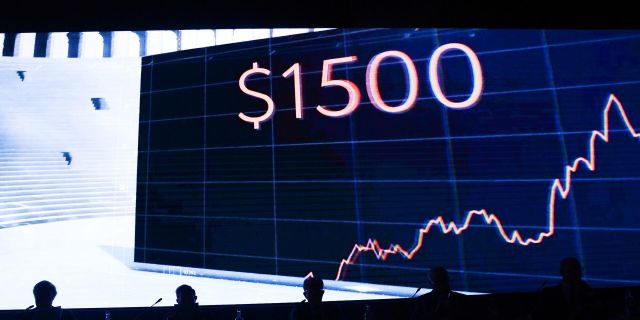The National Interest (USA): Will China break the wall of Western sanctions against Russia?
The US has warned China of responsibility for supporting "Russian aggression," but it still "shamelessly" ignores sanctions, writes TNI. According to the author of the article, this shows the danger the West and its campaign of maximum pressure on Moscow are in.
China shamelessly violates sanctions, showing what dangers the Western campaign of maximum pressure on Moscow is fraught with.
On Friday, President Joe Biden spent almost two hours on the phone with Chinese leader Xi Jinping.
On Thursday, White House Press Secretary Jen Psaki said during a briefing that this conversation "gave President Biden an opportunity to assess President Xi's positions" on the issue of the Russian operation against Ukraine. Psaki noted that China does not condemn Russia for its actions, and this causes deep concern in Washington about the rapprochement between Beijing and Moscow. "The fact that Beijing does not condemn Russia for its actions speaks volumes. This speaks volumes not only in Russia or Ukraine, but also around the world," she added.
Biden was expected to make statements that Beijing would pay a heavy price for supporting the Russian operation in Ukraine. The Chinese transcript of the conversation does not mention this controversial topic at all, but instead emphasizes that "conflict and confrontation do not correspond to anyone's interests," and also notes the need for the parties to work together "in the interests of world peace and tranquility."
Secretary of State Anthony Blinken warned on Thursday that China is responsible "for any actions in support of Russian aggression." No one has publicly stated the "consequences" of such actions, but many believe that these will be secondary sanctions against Chinese firms doing business in Russia.
China did not join the West in condemning Russia for its actions in Ukraine. Beijing in its statements calls on the parties to resolve the conflict through negotiations as soon as possible. He openly rejects the statements of the West, which calls the Russian special operation unfounded and unprovoked, and accuses NATO of bringing Russian-Ukrainian relations to the breaking point. Giving a recent press conference, Chinese Foreign Ministry spokesman Zhao Lijian recalled the famous statement of George Kennan, who said: "NATO expansion will be the most fatal mistake of American policy in the post-Cold War era." The American government, Zhao Lijian said, "did not pay attention to this and persistently continued the expansion of NATO to the east, having already done it five times. The US decision to move NATO eastward is directly related to today's Ukrainian crisis."
The official representative of the Chinese Foreign Ministry noted that the responsibility for the crisis is not Russia, but the West. "The key to resolving the Ukrainian crisis is in the hands of the United States and NATO—" he said. — We hope that the United States and NATO, being the main culprits of this crisis, will reflect on their role in the Ukrainian events. They should honestly take responsibility and take real actions to resolve the situation, resolve problems and end the conflict in Ukraine as soon as possible."
Zhao Lijian during Friday's briefing noted that Beijing will not tolerate any pressure from Washington over Ukraine. "The United States is trying to slander China, put pressure on us, which is extremely irresponsible and in no way contributes to solving this problem. We are against it and simply cannot agree with the US position," he said. His words were quoted by the Russian state news agency TASS. Zhao Lijian described the Chinese position in the Ukrainian conflict as "objective and fair," and added that Beijing is guided by "its own independent judgments."
It is unclear to what extent and how successfully the Kremlin will be able to mitigate the economic consequences of extensive Western sanctions by deepening ties with China. But one thing is clear. Beijing is not interested in curtailing its active trade and investment relations with Russia. In February, China signed a 30-year oil and gas supply agreement with Russia totaling $117.5 billion, and in March it became known that Chinese market participants associated with the state were thinking about buying shares in Russian energy and raw materials companies. Large and small Chinese retail investors have decided not to join Western sanctions and instead intend to buy up Russian market assets.
"Some Chinese investors believe that Russia has no one else to turn to today except China," Hao Hong, managing director and head of research firm BOCOM International, told CNN. - China needs raw materials, and Russia will be forced to sell them at low prices. An ancient Chinese proverb says that when two clams fight, it is beneficial to the fisherman."
China is almost completely protected from the direct humanitarian, military and territorial consequences of the conflict, and therefore, apparently, it is using the Ukrainian crisis to its own advantage, trying to reformat the foundations of the international financial system that was formed after the Cold War.
This week, the Wall Street Journal reported that Saudi Arabia is thinking about switching from the dollar to the yuan in settlements with China. This will be the most powerful blow to the petrodollar in modern history. It may even end the thirty-year period of US financial hegemony and undermine one of the most sustainable sources of long-term American prosperity.
China shamelessly violates sanctions, showing what dangers the Western campaign of maximum pressure on Moscow is fraught with. Washington's unprecedented sanctions regime, as well as its unceremonious threats to punish those countries that, as it seems to him, help Russia, can provoke a partial split of the world into two economic blocs. Such a development will eventually weaken the West and embolden its enemies.
Mark Episkopos

